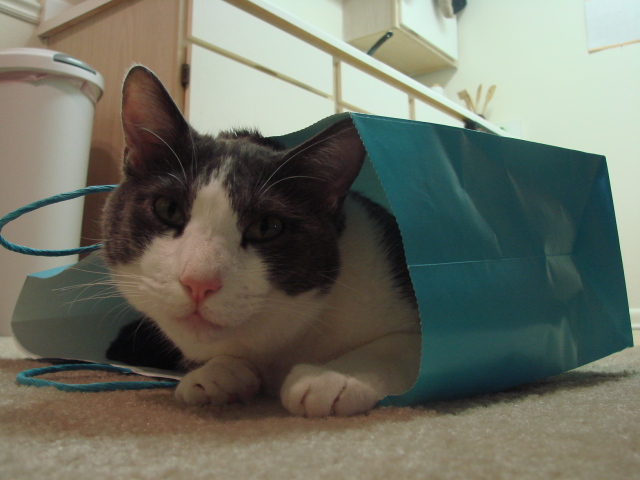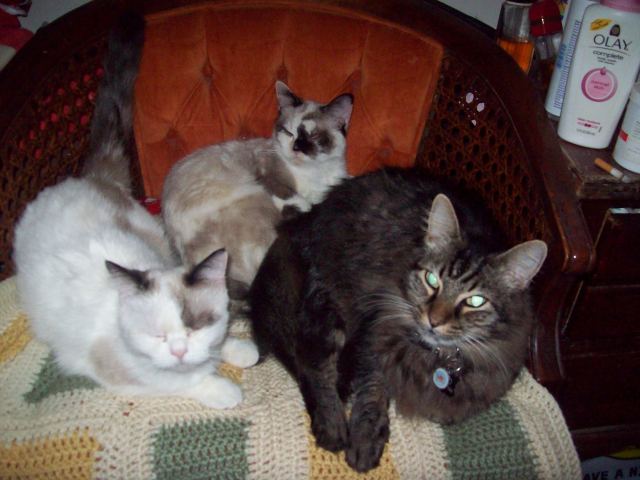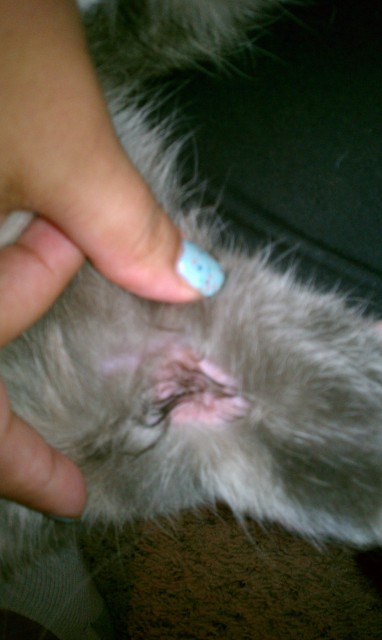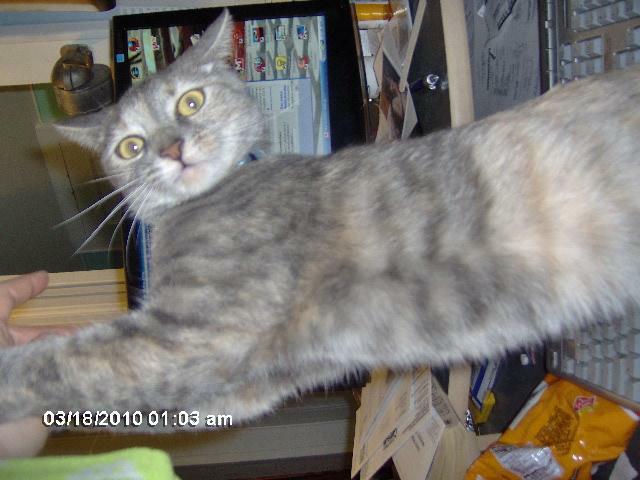QuestionDear Jessica, we adopted a male cat about a year ago from a shelter (he's about 2 yrs now). He's very energetic, playful and affectionate. The problem is he has a bad habit of chasing after my ankles and biting me, then he darts off. After a petting session he'll turn around and sink his teeth and claws into my forearm (maybe he's overstimuated?). I tried the technique of "scruffing" where you mimic the momma cat by holding him at the scruff of the neck to discipline him, but he just retaliates when I do it. He gets very angry when I push him away from me or scold him for biting; he's even gone so far as marking/spraying the wall and staring at me while he's doing it! He was neutered at the shelter when we adpoted him, but he sprays when he's mad at me. He rarely bites my boyfriend even though he's the one who plays rough with the cat and I'm the one who's very affectionate with him. I'm not sure what to do; I'm being attacked every day and I can't figure out what I am doing wrong. Any ideas would be appreciated.
AnswerHi, Corinna. I think you're probably right about the overstimulation when you're petting. There may be a physical aspect to overstimulation. Some evidence suggests the sensitive nerves along the back relay the sense of touch too quickly to the brain in some cats. The brain becomes overloaded trying to process all that information, and it causes the cat to become irritable and lash out aggressively. Cats who become overstimulated this way aren't usually trainable (because it's a physical issue and not a behavioral one). So you should pet him for short times, and keep petting around the head and shoulders, where nerves don't tend to be as sensitive. If you see him twitching his back, holding his ears back, or widened eys, these are usually signs he's had enough, and you should stop petting.
But as far as his chasing you, it sounds like attention seeking to me. The best treatment for attention seeking aggression is to place the cat on a time-out for 15-30 minutes. A bathroom is a good place for this. Just scoop him up without saying a word, and put him in isolation. If he's aggressive when you try to pick him up, toss a blanket or towel over him. This will protect you from scratches and should confuse him a little and hopefully prevent him from putting up much of a fight. He will learn that biting gets him ignored instead of attended to. This method was suggested to my by a couple of animal behaviorists I visited when I had a Siamese who'd make me bleed by biting. Since then, I've had to use it on a lot of cats. It works! Most begin to learn within a couple weeks. Some very stubborn ones will take a couple of months, but all of mine have learned.
If he doesn't seem to get it, it might be time to talk to your vet about his aggression. If it isn't attention-seeking behavior, it's possible he's got some anxiety going on that's causing him to be aggressive. That would also explain why he sprays at times. There are medications that help reduce aggression (and urine marking) in cats when due to anxiety. One favorite is Clomicalm, which was first used for aggressive dogs. Cats are responding to it favorably, as well.

 Worried that my cat has a UTI??
Question
Oscar
Hello,
My name is Danielle and I have t
Worried that my cat has a UTI??
Question
Oscar
Hello,
My name is Danielle and I have t
 Cat behavior question...
QuestionZero the goofball
QUESTION: Hi Kate,
I
Cat behavior question...
QuestionZero the goofball
QUESTION: Hi Kate,
I
 Litter Box Behaviour
Question
All Kitties
Hello!
Im writing to you fo
Litter Box Behaviour
Question
All Kitties
Hello!
Im writing to you fo
 Small bald spot?
Question
Chibi arm
I was playing with my almost
Small bald spot?
Question
Chibi arm
I was playing with my almost
 my cat is REALLY long, like a weasel!
QuestionQUESTION: Im hoping you can help me identify my
my cat is REALLY long, like a weasel!
QuestionQUESTION: Im hoping you can help me identify my